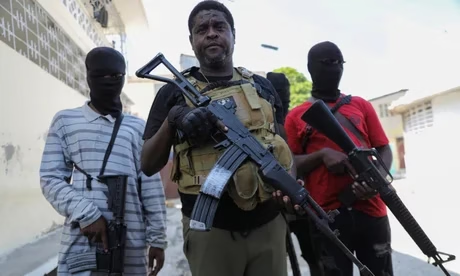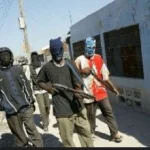On social media platforms—especially Facebook—Friday’s discussions were largely dominated by the U.S. administration’s decision to designate the Haitian gangs Viv Ansanm and Gran Grif as international terrorist organizations.
Many people expressed joy, believing that these gangs would finally be eradicated. Such euphoric reactions are more than understandable from a population that has suffered so greatly from the barbaric acts of notorious, lawless criminals.
Many also believe that with this designation, the international community, led by the United States, will finally deploy major resources to support the Multinational Security Support Mission and the Haitian National Police.
Although some resources—albeit limited—are indeed being provided to security forces, they remain largely insufficient. And this designation alone will not fundamentally change the situation, based on the experiences of other countries that have faced similar circumstances.
What is almost certain, however, is that the consequences for the country could be catastrophic.
Initially, I considered ten important points. But I ultimately concluded they could be grouped into just two categories—without downplaying the importance of the others.
In this article, we examine two of the main consequences for a country whose groups are designated as international terrorists.
1. Regional Security Concerns
If you read the State Department’s statement, you likely noticed several parts highlighting that Viv Ansanm and Gran Grif pose a threat to regional security.
In plain terms: these armed groups are not only a danger to Haiti but also to neighboring countries—starting with the Dominican Republic.
During the last United Nations General Assembly, Dominican President Luis Abinader called for Haitian gangs to be classified as terrorist organizations. He repeated this request during the visit of U.S. Secretary of State Marco Rubio to the Dominican Republic, shortly after his confirmation by the Senate.
In a 2001 document titled “Combating Terrorism within the Framework of International Law,” the United Nations recognizes a country’s right to enter a neighboring territory—provided the purpose is to combat a terrorist organization.
This principle has already been applied in Afghanistan, Irak, Libya, Lebanon, among others. However, the document also notes that any intervention must respect international conventions and treaties.
Thus, based on this principle, President Abinader could legitimately order his armed forces to enter Haiti under the pretext of counterterrorism—especially since some Haitian gangs are already advancing toward border regions.
2. Economic Isolation
The sanctions tied to this designation could discourage foreign investment and damage trade relations, worsening an already critical economic situation.
At first glance, one might think the impact is minimal, given the current low level of investment in Haiti. However, the side effects are very real—especially on the financial system: banks, money transfer services, microfinance institutions, etc.
International financial institutions may impose additional restrictions, slowing the flow of remittances—including those from the Haitian diaspora, which are vital to the daily survival of millions of families and the functioning of the national economy.
This economic isolation could also have direct consequences on humanitarian aid, which has unfortunately become essential for the Haitian population.
NGOs may face legal barriers in operating, due to the need to avoid any interaction—even indirect—with designated terrorist entities. Some governments may even advise their citizens against taking part in humanitarian missions in Haiti.
Yet according to the United Nations, humanitarian aid represents the main food source for more than half the Haitian population.
In short, for those hoping that designating criminal groups as terrorist organizations will improve security in Haiti, I do not claim otherwise.
But what is certain is that this measure will have many consequences.
This is not pessimism—rather, the experiences of other countries that have gone through similar situations invite us to seriously reflect on the potential implications.
It is therefore essential that this designation be accompanied by concrete and well-coordinated international support to mitigate its negative effects on the population and local institutions.







